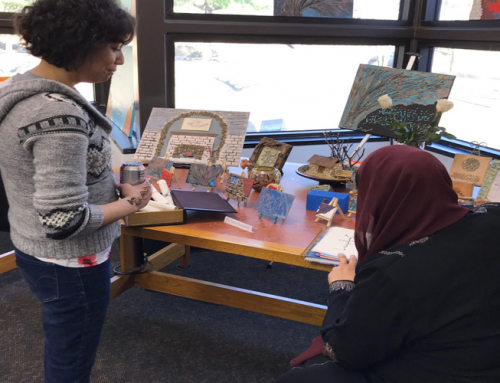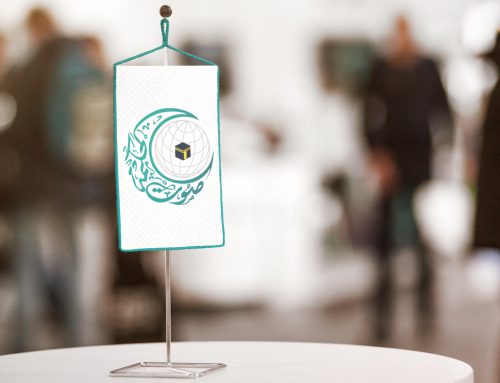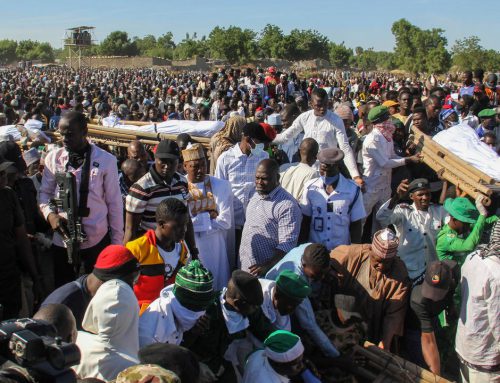In addition to the mentioned observations about the condition of Umar in part 2 of this article, here we mention another critics based on the methodology of the prophetic traditions. (Sanad and Matan).
– These conditions of Umar were narrated in the sources of the Islamic heritage in four different ways, namely the narration of Al-Khallal from Ismail Ibn Ayyash, and the narration of Ibn Al-Arabi, Ibn Hazm and Al-Bayhaqi from Masroq Ibn Ajdah, and another narration by Ibn Al-Jawzi from Sufian Al-Thawri, and a fourth narration was by Ibn Asaker from Shahr Ibn Hoshab. The four narrations are weak as will be shown:
– Ibn Al-Khallal’s narration is attributed to an unknown narrator, as it said, “A man of knowledge said.” Muslim scholars have a consensus that the unknown narrator of the Prophet’s narration is unacceptable, even if he was a leading authority in this regard. In this narration, the narrator was Ismail Ibn Ayyash Al-Shami, who Imam Ahmad Ibn Hanbal and Ahmad Ibn Muin said about: “If he narrates about the people of his town he is the best, but if he narrates about people outside his town, he confuses and mix up the narrations.” The narrator, who narrated these conditions, did not mention from whom he narrated, i.e. whether it was from people from Syria or elsewhere.
– The narration of Ibn Al-Arabi, Ibn Hazm, Al-Bayhaqi, and Ibn Asaakir was from Masruq Ibn Al-Majdah, who narrated from Abd-Al-Rahmaan Ibn Ghanem. The narration chain to Masaruq had Yehia Ibn Aqba Ibn Abi Al-Izzar, who was a known liar. Yehia Ibn Maaeen said about him: “Liar, cunning and enemy of God.” Al-Bukhari said about him, “His narration is evil.” Ibn Abi Hatim Al-Razai said about him: “He makes up the narration.” Therefore, Imam Al-Albani concluded that these conditions were invalid and weak.
– Ibn Al-Jawzi’s account of these conditions came from Sufian Al-Thawri from Masrouq Al-Majdah from Abd-al-Rahman Ibn Ghanem. This narration chain suffers from weakness because of the existence of a break between Sufian Al-Thawri, who was born in 97 AH, and Musroq Ibn al-Majdah Al-Tabaji, who died in 63 AH, where a big age gap exists between both of them, in addition to the break between Sufian Al-Thawri and the Imam Ibn al-Jawzi himself, who died in 691 AH, while Ibn Al-Jawzi did not attribute his narration to Sufian Al-Thawri.
– One of the narrators of Ibn Asaakir was conveyed by Shahr Ibn Hushab, of whom some of the scholars of the Prophet’s biography said that: having Abu Muhammed Ibn Zubar as a narrator, who was the judge of Damascus, of whom Abu Bakr Ibn Makula said: “The scholars of narration do not accept his narration.” Al-Hafiz Al-Zahabi said: “He does not memorize narrations perfectly.” Baghdadi said in the history of Baghdad: “He was not trustworthy,” therefore the narration is weak.
– One of the contradictions of these conditions is the conflicting account of the town in which the conditions were written between Christians and Muslims. In one place, it says in the Upper Mesopotamia (parts of Iraq, Syria and Turkey), according to Ibn Al-Khallal. In another narration, it is Jerusalem. In a third narration, it said they were written in Damascus. And in a fourth narration, it does not identify the name of the town, which is another proof of its weakness and contradiction.
– It seems that the author of this narration mixed with the name of the invader of Upper Mesopotamia, which was attributed to Abdul Rahman Ibn Ghanem, while the invader was the great companion Ayad Ibn Ghanem. All the pacts and reconciliations of Ayad Ibn Ghanem with the people of the invaded lands were mentioned and preserved in the books of the Islamic heritage, and none of them mentioned these alleged conditions. All of them were consistent with the text of the Prophet’s covenant and his biography.
– The formulation of the conditions was strange. Why would Christians would put themselves under unjust conditions at their own request?! When did a group of people who lost a war lay down conditions then get them approved by the winning party, despite being contrary to the winning party’s history and their principles of religion.
– Among the claimed conditions is that the Christians said: We will not show unfaithfulness, “How do Christians describe their religion as unfaithfulness?”
– Of the strange words contained in the conditions are some Syriac words such as ‘Kalaia’ ‘Baaoth’ ‘Shaanin’ that entered the Arabic language at a very late stage after the historical context of the Islamic period of conquests, in which these conditions were supposedly written, suggesting that a delay took place before writing these conditions.
– In the Kitab al-Um, Imam al-Shafei, proposed a list of items that he considered to be the principles to deal with the people of the book. It is worth mentioning that he never mentioned the conditions and did not refer to them. How does an Imam, with such great knowledge, overlook such conditions, if they were known and famous during his time? His conditions are completely contrary to the claimed Conditions of Umar. Al-Shafei has conducted his conditions on the basis of “They bear what we do and we bear what they do.”
– All these observations and others, briefly mentioned in this article, reveal the falsification of these conditions and their negativity, and the fact that they are part of the plots designed to defame the image of Islam. They also reveal the invalidity of the legal principles on which advocates of extremism justify their extremist claims and religious decrees towards non-Muslims. At the same time, it reveals the importance of rereading and re-scrutinising our religion, and to remove all roots of sedition and exclusion, and re-link Islam to the spirit of the Holy Quran and the biography of the Prophet.
*Dr.Tarik Ladjal is Professor of History at Effat University in Jeddah, Saudi Arabia






